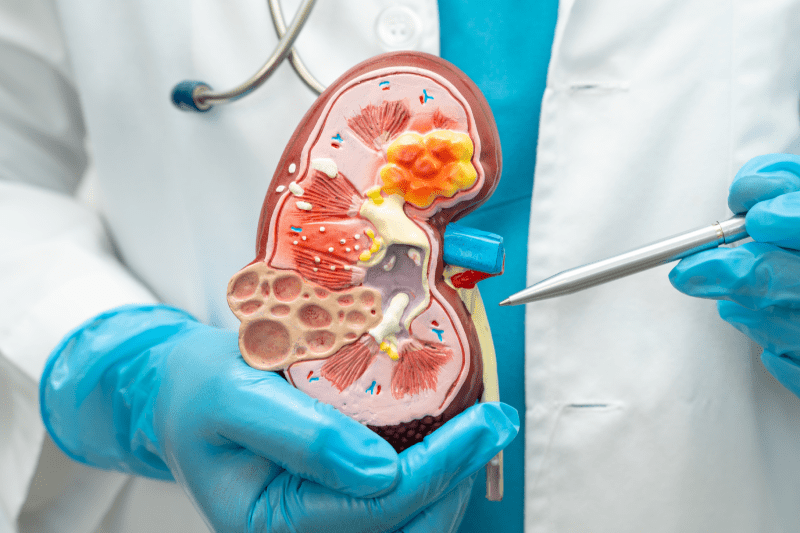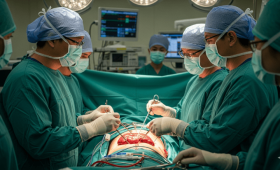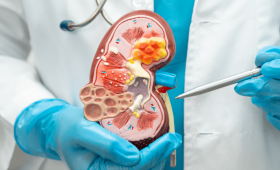What Is the Cost of Kidney Transplant Surgery in Turkey?
The cost of kidney transplant surgery in Turkey varies depending on many factors. These factors include the location of the hospital (large cities vs. small cities), whether the hospital is public or private, the quality of the medical technology used, and the surgeon’s experience. Generally, kidney transplant costs in Turkey are much more economical compared to Western European countries. These prices usually include pre-operative tests, the surgical operation, hospitalization, and initial follow-up appointments. However, additional treatments or unexpected situations can affect the total cost.
What Are the Advantages of Choosing Turkey?
Turkey has an international reputation in the field of kidney transplantation due to its expert surgeons, modern hospital infrastructure, and high success rates. Many hospitals with international accreditations like JCI have proven that their service quality is at world standards. In addition, Turkey’s geographical location provides easy access for patients coming from Europe, the Middle East, and Asia, in particular. These factors make Turkey an attractive destination for patients looking for high-quality treatment at a more affordable price.
Under What Conditions Is an Application for a Transplant Made?
An application for a kidney transplant is generally considered for patients diagnosed with end-stage renal failure. This condition means that the kidneys are unable to perform their normal functions, and the patient cannot survive without dialysis or a transplant. The transplant aims to improve the patient’s quality of life, eliminate the need for dialysis, and extend life expectancy. The patient’s general health condition is determined through a series of tests and evaluations to assess their suitability for a transplant.
Is There an Age Limit for Kidney Transplant Surgery in Turkey?
There is no definitive age limit for a kidney transplant. What is important is the patient’s biological age and general health status rather than their chronological age. The transplant team evaluates whether the patient can handle the surgery and the subsequent recovery process. Transplants can be performed successfully in a wide range of patients, from childhood renal failure to advanced age. The decision is made by a multidisciplinary board by balancing the patient’s potential risks and the benefits they will gain from the transplant.
What Are the Transplant Success Rates in Turkey?
The success rates of kidney transplant centers in Turkey are above world standards. In live donor kidney transplants, the one-year patient and kidney survival rate is generally over 95%. These high rates are associated with the experience of the surgeons, the modern equipment of the hospitals, and the high-quality care provided after the surgery. These success rates are one of the most important factors that make Turkey a reliable transplant center in the international arena.
How Does the Process of Finding a Live Donor Work?
For a live donor transplant, a healthy relative of the patient with a compatible blood type and tissue is sought. In this process, the potential donor undergoes a comprehensive medical and psychological evaluation. It is a legal requirement that the donor is a volunteer and does not have any commercial interests. Live donor transplants have significant advantages, such as the quality of the organ and the ability to plan the surgery. Turkish legislation ensures that this process proceeds within an ethical and legal framework.
Is It Possible to Have a Cadaveric Transplant?
Cadaveric kidney transplantation is also possible in Turkey, but the rate is lower than live donor transplants. For a cadaveric transplant, the patient is placed on the national waiting list. Continuous campaigns are organized to increase organ donation. When a suitable organ is found, a cadaveric transplant is performed on the most urgent and compatible patient on the list. This process can be more uncertain and require a longer waiting period than a live donor transplant.
Who Covers the Donor’s Surgical Costs?
In a kidney transplant surgery, the entire cost of the donor’s surgery and hospital expenses is legally covered by the recipient. This is an important rule established to prevent organ trafficking and to ensure the donor does not suffer any financial loss. The donor’s surgery expenses are included in the recipient’s total treatment budget. This is both an ethical necessity and is guaranteed by legal regulations.
What Is the Cost of Post-Transplant Medications?
The most important medications that patients must use for life after a transplant are immunosuppressive (immune system suppressing) drugs. These medications are of vital importance to prevent the body from rejecting the transplanted kidney. The cost of the drugs varies according to the brand and dosage. While medication prices in Turkey may be more affordable than in Western countries, this long-term expense must be taken into account in budget planning.
What Are the Possible Hidden Costs During the Transplant Process?
Hidden costs that may arise during the kidney transplant process are one of the issues that require the most attention. These costs can include additional pre-operative tests, treatment for unexpected complications, an extended stay in intensive care, or extra medication expenses. To avoid such surprises, the most accurate approach is to get a written and transparent price quote that includes all expenses from the hospital.
What Are the Extra Costs for Patients Coming from Abroad?
Patients coming from abroad must include travel, accommodation, and living expenses in their budget in addition to the surgery and hospital costs. The transplant process can take several weeks or even months. During this period, the accommodation, food, and local transportation expenses of the patient and their companion constitute a significant part of the total budget.
Are Accommodation and Interpretation Services Included in the Price?
Some large, international patient-oriented hospitals in Turkey may include accommodation and interpretation services in their package price. However, these services are usually charged separately. The international patient units of hospitals help patients arrange such services. The interpretation service is of vital importance, especially for the correct understanding of medical terms.
What Do Detailed Pre-Transplant Tests Include?
The pre-transplant evaluation is performed to determine whether the patient and donor are suitable for surgery. This process includes comprehensive blood tests, tissue typing, radiological imaging (ultrasound, tomography), cardiological tests, psychological evaluation, and infection screenings. These tests are vital to minimize potential risks and maximize the chances of transplant success.
What Is the Level of Expertise of Surgeons in Turkey?
Turkey has highly experienced surgeons in the field of kidney transplantation. Most of these surgeons have received training abroad, presented at international conferences, and performed thousands of successful surgeries. This experience makes Turkey a reliable center in this field. When choosing a surgeon, it is important to research their experience and success rates.
How Long Does the Post-Transplant Recovery Process Take?
The post-transplant recovery process depends on the patient’s general health status and the success of the surgery. Patients generally stay in the hospital for 1 to 2 weeks after the surgery and can return to their normal lives within a few months. The full recovery process can take several months. During this process, it is very important for the patient to use immunosuppressive drugs and go for regular doctor check-ups.
Is a Visa and Travel Insurance Required for a Transplant?
Yes, patients and their companions traveling to Turkey for treatment generally have to cover expenses such as visa and travel insurance themselves. The visa requirement depends on the agreements between the patient’s home country and Turkey. Travel insurance provides financial protection in case of unexpected emergencies or a prolonged treatment period.
Which Hospitals in Turkey Are Considered Reliable for Kidney Transplants?
When choosing a reliable hospital for a kidney transplant, attention should be paid to international accreditations (such as JCI), the experience of the surgeons, the hospital’s technological infrastructure, and success rates. University hospitals and private transplant centers in large cities generally stand out in this field. Examining patient reviews and references of hospitals contributes greatly to the decision-making process.
How Are Post-Transplant Check-ups Conducted?
Post-operative care and regular check-ups are vital for transplant success. Patients who have a transplant abroad stay in the hospital or near the hospital for the first few weeks of treatment. After returning to their home country, the patient continues their check-ups in collaboration with a nephrology specialist in their own country. In this process, it is important for the transplant center to maintain communication with the patient.

How Is the Health and Safety of the Live Donor Ensured?
The donor’s health and safety are the most important priority of the transplant process. The donor undergoes a comprehensive health screening before the surgery and is also psychologically evaluated. It is confirmed that the donor is donating their organ voluntarily. All necessary measures are taken to ensure that the donor lives a healthy life with the remaining kidney. The donor’s health and safety are meticulously monitored.
Are Cancer Screening Tests Performed During the Surgery?
Yes, both recipient and donor candidates for a kidney transplant are required to undergo comprehensive cancer screening tests. These tests are performed to reveal the presence of a hidden cancer in the patient or donor. The presence of cancerous cells can cause the transplant procedure to be stopped or postponed. This is an important protocol applied to protect the health of the patient and the donor.
How Long Does the Transplant Surgery Take?
The duration of kidney transplant surgery varies depending on the condition of the patient and the donor. On average, a live donor transplant surgery can take 3 to 5 hours. The duration of the surgery depends on the surgeon’s experience, the techniques used, and any potential complications that may arise during the operation. The intensive care and hospital stay process after the surgery are as important as the surgery itself.
Is There a Long Waiting List for a Transplant?
In live donor transplants, there is no waiting list because the donor comes with the patient. However, if a cadaveric transplant is to be performed, there is a waiting list in every country depending on the availability of the donor organ. This list is arranged according to criteria such as medical urgency and compatibility. The waiting period can vary from country to country and can be long.
What Are the Accommodation Options for a Companion?
Patients who have kidney transplant surgery need a companion for support during the recovery process. Hospitals usually offer affiliated hotel or apartment options close to the hospital for the companion. These accommodations are ideal for the companion due to their proximity to the hospital and the comfort they provide. It is important to include these expenses in the budget planning.
What Is the Level of Expertise of the Medical Team in Turkey?
Kidney transplant surgeries are performed by an experienced and multidisciplinary team. This team consists of a surgeon, a nephrology specialist, an anesthesiologist, an infectious diseases specialist, and a transplant coordinator. Each member of the team is an expert in their field and collaborates for the patient’s health at every stage of the transplant process.
What Is the Quality of Materials Used in the Surgery?
In kidney transplant surgeries in Turkey, materials that are at international standards and approved are used. The surgical instruments, implants, and medications used for the transplant are of the highest quality and have the European Union’s CE (Conformité Européenne) certification. This ensures that the surgery is performed safely and that successful outcomes are achieved.
How Can One Get a Price Quote for a Transplant?
To get a price quote for a transplant from hospitals in Turkey, the process usually begins with the patient sending their medical reports and imaging results to the hospital’s international patient unit. The medical team evaluates these reports and provides the patient with a personalized treatment plan and an estimated cost quote. This quote should transparently include all cost items.
How to Avoid Organ Trafficking?
Organ trafficking is illegal internationally and causes serious ethical problems. Reliable and accredited hospitals demand strict audits and documents to confirm that the donor is a volunteer and is not donating an organ in exchange for any financial gain. The best way is to act through a transparent and reliable health center or medical tourism agency.
How Is the Cost of Post-Transplant Complications Covered?
The cost of complications that may arise after a transplant varies depending on the situation. If the complication occurs immediately after the surgery, during the hospital stay, these costs are generally included in the initial package price. However, the cost of complications that arise after the patient is discharged and require additional treatment must be covered by the patient’s own health insurance or budget.
How to Find the Best Kidney Transplant Surgeon?
To find the best surgeon, a comprehensive research is required. It is important to examine the surgeon’s career history, the hospital they work at, their area of expertise, and the number of transplants they have performed before. In addition, surgeons who have presented at international medical conferences, have scientific articles, and have positive patient references are a reliable indicator. Medical tourism agencies or the international patient units of hospitals can help you with this.
What Are the Living and Accommodation Expenses?
Patients who will have a kidney transplant abroad must plan for long-term accommodation and living expenses in addition to the surgery cost. The transplant process can take several weeks or even months. During this period, the accommodation, food, and local transportation expenses of the patient and their companion constitute a significant part of the total budget.
What Happens if the Surgery Process Takes Longer?
The transplant process can be prolonged due to unexpected situations. In these cases, the hospital stay may be extended, and additional tests or treatments may be required. These situations can significantly affect the budget. Therefore, it is a smart approach to allocate an emergency fund of 10% to 20% in the initial planning. In addition, it is important to check in advance whether travel insurance covers such situations.
What Are the Advantages of a Live Donor Transplant?
The biggest advantages of a live donor transplant are that there is no waiting period and the surgery can be planned. Kidneys taken from a live donor generally start working faster, and long-term success rates are higher than cadaveric transplants. In addition, the risk of post-operative complications is lower because the donor is known to be healthy.
Is Physical Therapy Necessary After a Transplant?
It is a common situation for patients to need physical therapy after a kidney transplant. A prolonged hospital stay and surgery can lead to a decrease in muscle strength and general mobility. Physical therapy sessions aim to help the patient return to their daily activities in a short time and accelerate their overall recovery. The cost of this treatment can be included in the treatment package or specified as an additional expense.
What Happens if There Is an Incompatibility with the Donor?
In case of blood type or tissue incompatibility with the donor, there are some alternatives for patients. Blood type incompatible transplants have been made possible with special medications and procedures. Another option is donor pool programs. In these programs, incompatible donor-recipient pairs are cross-matched with another incompatible pair to find a suitable kidney for both patients.
Why Is a Pre-Transplant Psychological Evaluation Important?
The kidney transplant process can be physically as well as psychologically challenging for both the recipient and the donor. Therefore, a psychological evaluation is performed to confirm that both parties are ready for the transplant and can emotionally manage the process. Evaluating the patient’s resilience to the difficulties that post-transplant life will bring is also part of this process.



